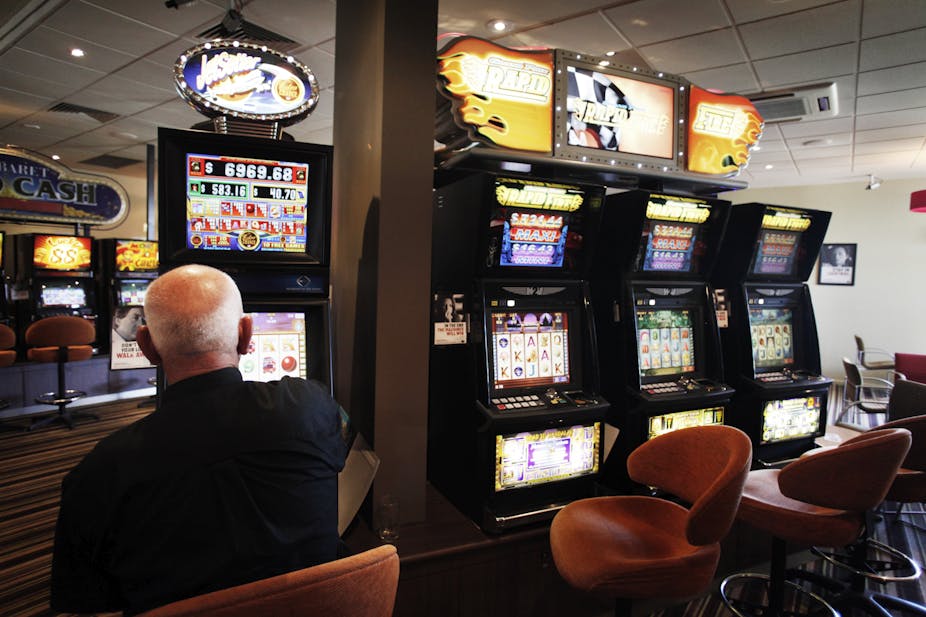Earlier this month, a team of British anthropologists from Goldsmiths College of the University of London published a report about the mundane, if very lucrative, world of Big Gambling and the cadre of gambling researchers who help legitimise it.
The report was based on a three-year research program. It involved interviews with more than 100 stakeholders in the gambling industry-state-research nexus globally, including from Australia.
The report’s key finding was that academic research into gambling is heavily biased. It is controlled by industry and government in two main ways.
Firstly, funding bodies control research priorities and are not at arm’s length from governments and industry. Decisions relating to what research questions get asked and what counts as evidence are made with reference to bureaucratic politics and industry agendas, rather than the public good or academic merit.
Secondly, the gambling industry withholds data and access, which impairs the ability of researchers to build an evidence base. Data generated by gambling activity is controlled by industry or government regulators. And they rarely make it available, except to those whom industry or government trust.
This allows the gambling lobby and governments to point to the carefully manufactured “lack of evidence” when crucial and effective reforms are proposed.
Australia’s gambling research infrastructure
You might think things are different in Australia. Unfortunately, you would be mistaken.
A small and modestly funded national centre for gambling research was established at the Australian Institute for Family Studies in response to the Productivity Commission’s 1999 and 2010 concerns about a national lack of independent research capacity. Despite this, state and territory government agencies commission the vast majority of gambling research in Australia.
But Australian governments are hardly arm’s length, disinterested funders of impartial research. Most state governments are heavily dependent on gambling taxes. An average of around 10% of own-state revenue comes from various gambling taxes. Both NSW and Victoria derive well over A$1.5 billion a year from gambling taxes.
The whole Australian political economy is inextricably [bound up with commercial gambling](http://epubs.scu.edu.au/tourism_pubs/934/, especially poker machines.
Research is affected in a number of ways. First, commissioned research is generally funded by a levy on poker-machine losses. The authors have received such funding themselves. This means the research budget is directly dependent on the number of gamblers, especially the problem gamblers who are responsible for 40% of total spend on poker machines. Why reduce problem gambling when it is paying your salary?
Also, research priorities are often set by advisory committees, consisting largely of bureaucrats, the gambling industry, “community” representatives and handpicked academics. Gambling Research Australia (GRA) manages and implements Australia’s national gambling research agenda, overseen by a consortium of state and territory government gambling regulatory agencies.
Independent, critical research that focuses on systemic issues or otherwise embarrasses is rarely suggested in the first place, even if it is in the public good.
Finally, the gambling industry itself commissions a modest body of gambling research. It should come as no surprise to learn that such research is rarely critical of the industry. Experience from tobacco research, for example, shows that industry-funded research tends to produce results favourable to big business, even after methodology and research questions are controlled for.
Why do researchers comply?
The reconfiguration of Australian universities over the last three decades has played a critical role in producing compliant gambling researchers.
Universities have moved from a model where academics were hired in permanent positions and were free to pursue their own research interests to one where salaries are increasingly supported by external project-specific funding. As a consequence, more researchers and research centres are tied to short-term contracts and “soft” consultancy money from governments and industry.
This means that researchers who wish to stay funded and retain their jobs are forced into cosy relations with research funders and industry, unmediated by independent structures that can provide independence to research.
Gambling researchers stay funded by producing research that is “safe”, uncritical and reliably delivered. This amounts to consulting-style work where the more important questions of the public good are, at best, sidelined.
But the reality is that gambling researchers have little access to research funding aside from the state governments and industry. There is no independent pool of funds to conduct research at arm’s length from governmental agenda-setting, despite the $20 billion Australians lose gambling every year.
As it stands, the academy merely constitutes one part of the industry-state-research triad that produces and legitimises commercial gambling in Australia.
Where to in the future?
Although the field of gambling studies is fraught, there are remedies available to address the lack of independence that characterises a great deal of its research output.
Although funding bodies such as the Australian Research Council (ARC) and the National Health and Medical Research Council are far from perfect institutions, they do offer a model for a more independent and academically rigorous approach to gambling research. An independent gambling research funding body could run as a separate program of the ARC, using the ARC’s peer-review mechanism of assessing funding applications on the basis of academic merit.
Disclosure models and declarations of interest should also be adopted from the alcohol and tobacco research fields. In one example, that of VicHealth, funds are not provided to researchers who have previously been funded by the tobacco industry.
While research into treatment and harm-minimisation measures is important, it is far more effective and socially responsible to tackle the causes of this trouble. This means asking uncomfortable questions and hearing even more uncomfortable answers. That is something that neither governments nor the gambling industry seem inclined to want.

